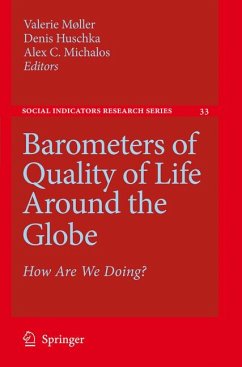Quality of life (QOL) research has made great strides since the social indicator movement started as a scientific enterprise in the 1960s. Following the lead of pioneers in North America and Europe, social scientists in other regions of the world have adopted and refined social data systems or barometers to monitor progress in enhancing the welfare and well-being of citizens. A distinctive feature of these barometers is that they measure both individual and societal quality of life. While not overlooking the more basic needs and material standards of living, the barometers also inform on issues of individual freedoms and choices and constraints on citizen empowerment that enhance and depress quality of life. Designed to capture nuances in local definitions of the good life, regional barometers are unique expressions of the obstacles facing different societies in their quest to achieve the good life. Scholars of public policy as well as policy makers will find inspiration from reviews of innovative initiatives to monitor contemporary quality of life in six regions of the world spanning South America, the Arctic, Europe, Africa, Asia, and Australia.
Dieser Download kann aus rechtlichen Gründen nur mit Rechnungsadresse in A, B, BG, CY, CZ, D, DK, EW, E, FIN, F, GR, HR, H, IRL, I, LT, L, LR, M, NL, PL, P, R, S, SLO, SK ausgeliefert werden.
From the reviews: "This book provides didactic efforts at measuring quality of life (QOL) through survey instruments. ... The book reads as a reference for QOL research, potentially useful for scholars getting their feet wet in survey data, and correlates of welfare and well-being around the world. ... Taken individually, each of the chapters may provide necessary information for readers looking for specifics on a nation or region." (Nate Breznau, International Journal of Public Opinion Research, Vol. 22 (1), Spring, 2010)


